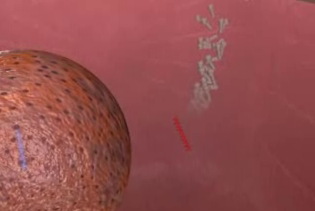
February 20, 2012 — Biopharmaceutical company Celladon Corp. this week completed a $43 million equity financing to advance its lead investigational drug candidate Mydicar for the treatment of heart failure.
"We are pleased to have attracted such a top tier syndicate to support advancement of Mydicar for the benefit of advanced heart failure patients," said Krisztina Zsebo Ph.D., president and CEO of Celladon Corp. "The positive results of the phase 2 CUPID Trial demonstrated the potential of Mydicar to become an important treatment for patients with chronic, advanced heart failure."
Celladon plans to advance the clinical development of Mydicar in 2012. Mydicar was recently granted Fast Track Status by the U.S. Food and Drug Administration (FDA) in December 2011.
"Mydicar has demonstrated clinical benefit in human clinical trials and we believe that it has the potential to be a much needed new treatment option for patients with advanced heart failure. Pfizer Venture Investments is very pleased to support Celladon's efforts to improve the lives of heart failure patients with our investment in the company," said Celladon's new chair Barbara Dalton, Ph.D.
The previously announced results of the phase 2 CUPID Trial met its primary safety and efficacy endpoints at 6 months for high dose Mydicar versus placebo. Additionally, 12 months after receiving a single infusion of Mydicar, patients treated with the highest dose versus placebo had an 88 percent risk reduction (Hazard Ratio = 0.12, P=0.003) of major cardiovascular events such as death, need for left ventricular assist device (LVAD) or cardiac transplant, episodes of worsening heart failure and number of heart failure-related hospitalizations.
The mean duration of hospitalization in the Mydicar high dose group during the 12-month period was 0.4 days per patient compared with 4.5 days per patient in the placebo group. This finding is especially noteworthy because heart failure is the leading cause of hospitalization in Americans 65 years of age and older.
Additionally, the 12-month CUPID data show that heart failure, which is a progressive disease, became stabilized in high dose Mydicar-treated patients: heart failure symptoms, exercise tolerance, serum biomarkers and cardiac function essentially improved or remained the same while these parameters deteriorated substantially in patients treated with placebo and concurrent optimal drug and device therapy.
The safety profile from the study was very favorable, with no significant side-effects from Mydicar therapy.
Mydicar is a genetically targeted enzyme replacement therapy intended to restore levels of Serca2a, a regulator of calcium cycling and contractility. Serca2a levels decline in all forms of late-stage heart failure resulting in deficient heart function. With Mydicar, the Serca2a gene is delivered using a recombinant adeno-associated virus (AAV) as the vector. AAV is a naturally occurring virus not associated with any disease in humans. Mydicar is delivered in a single dose directly to the heart during a routine outpatient cardiac catheterization procedure, similar to an angiogram. Mydicar is synergistic and additive across current heart failure treatments such as ACE inhibitors, beta-blockers, sprinolactone/diuretics, and biventricular pacing devices. No treatment substitution decision is required by the treating physician.
For more information: www.celladon.net


 January 28, 2026
January 28, 2026 









